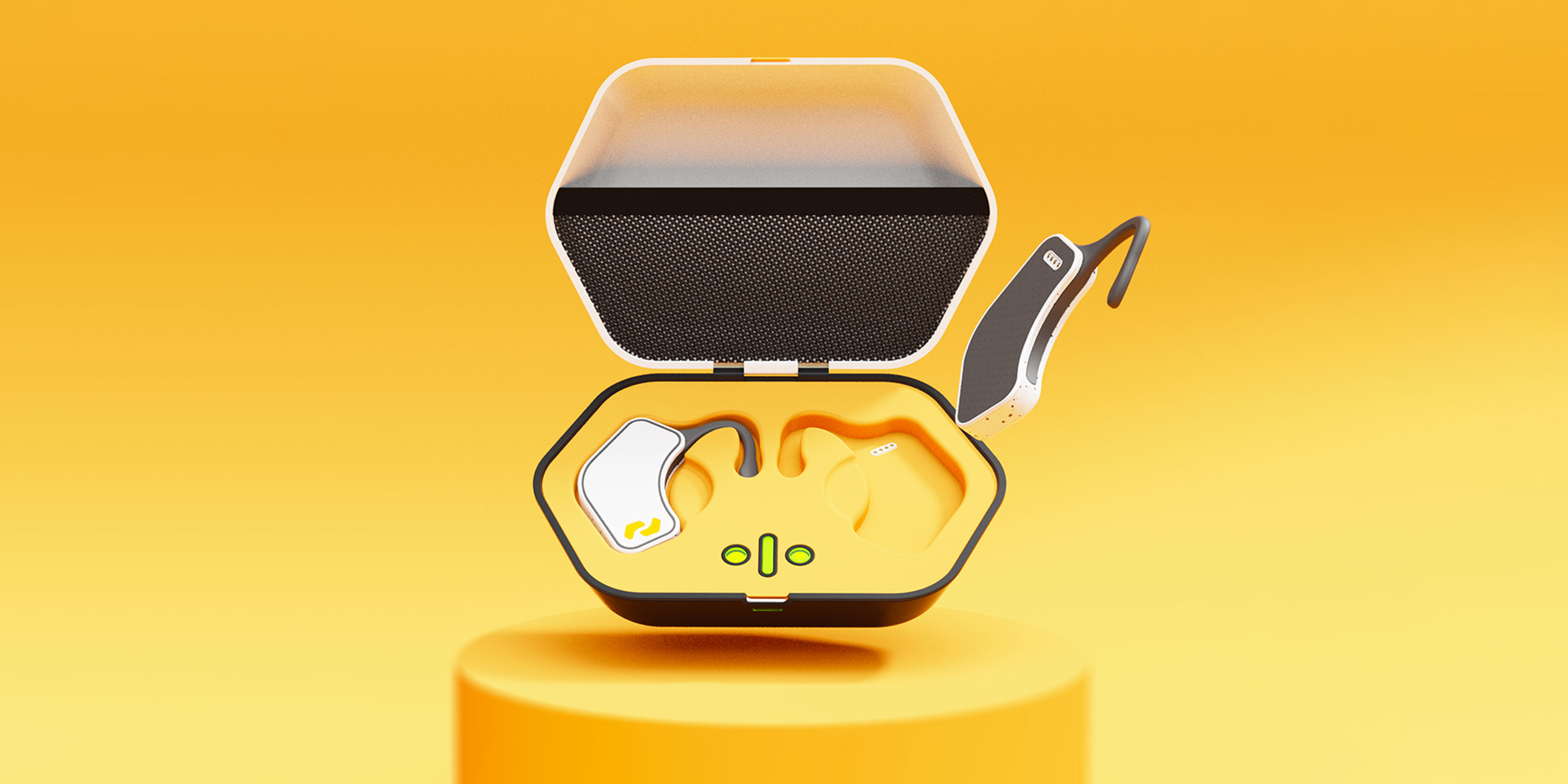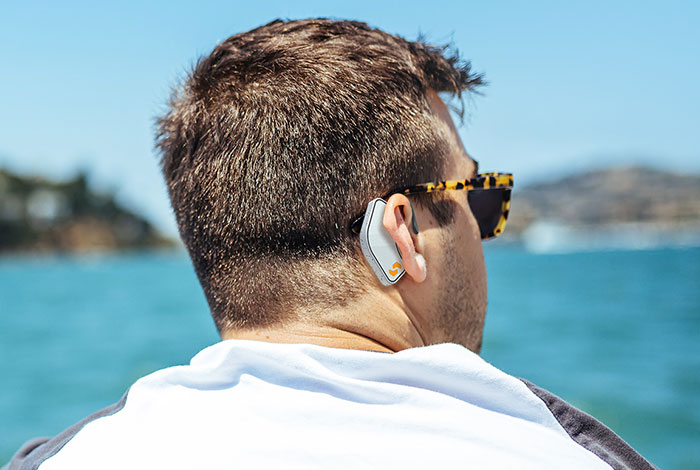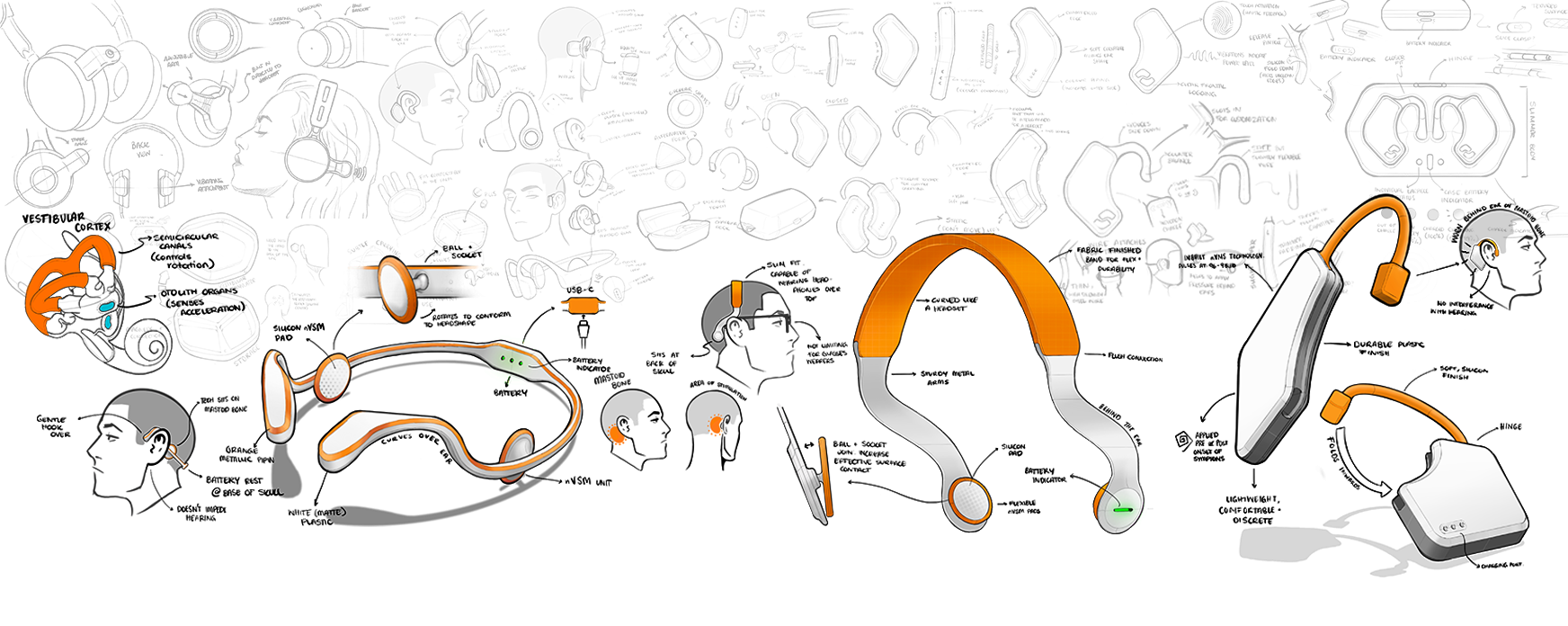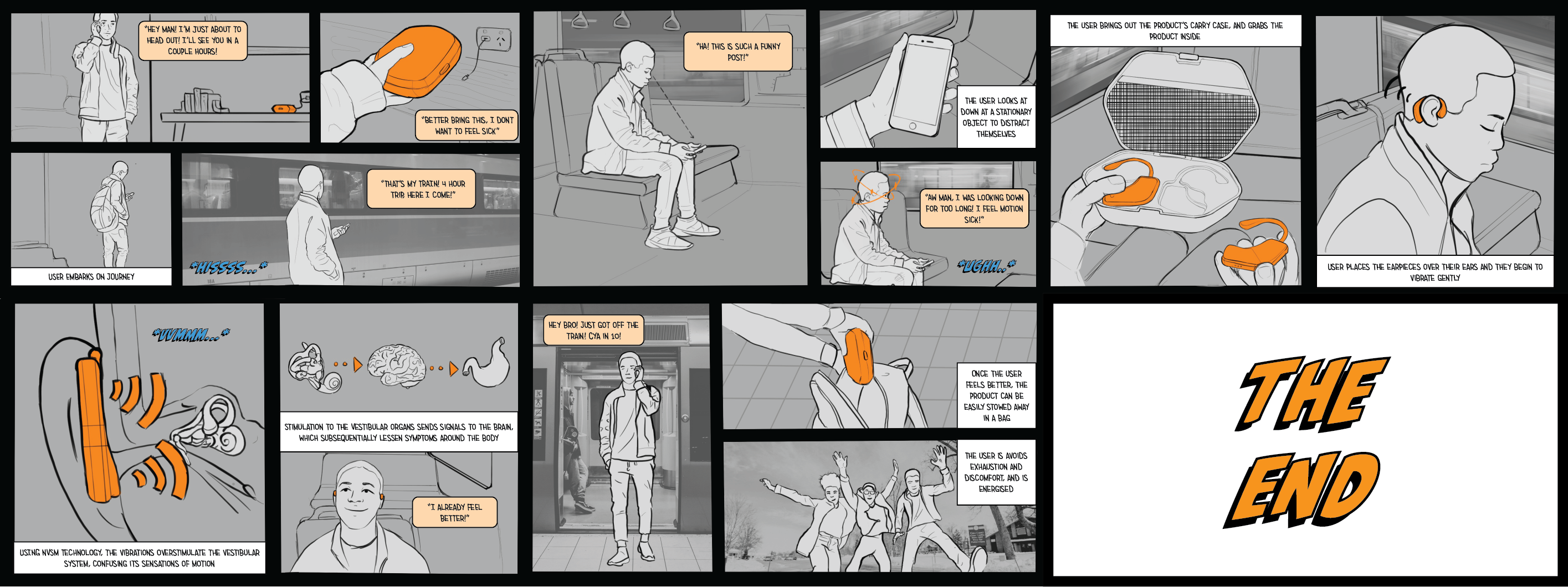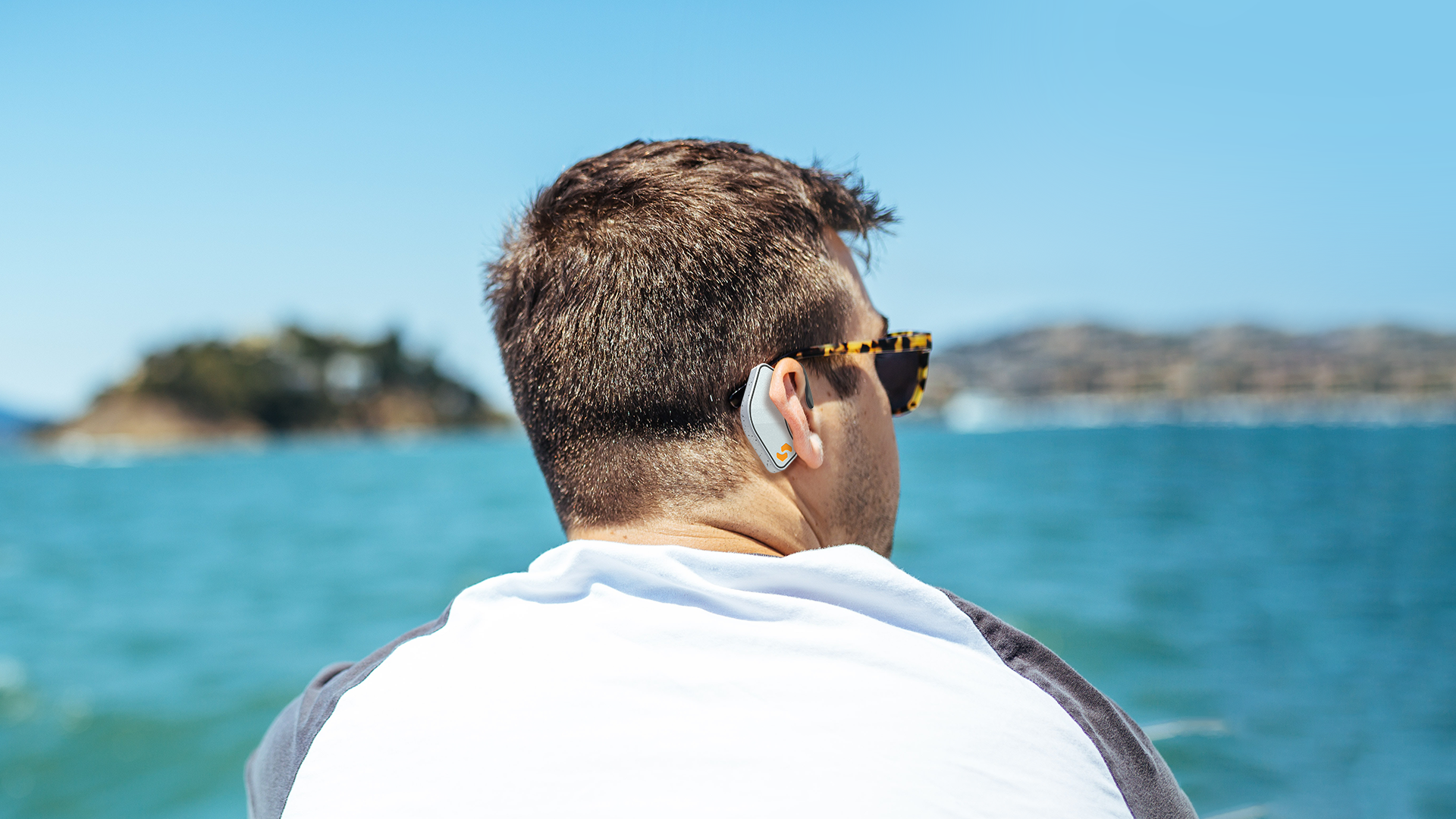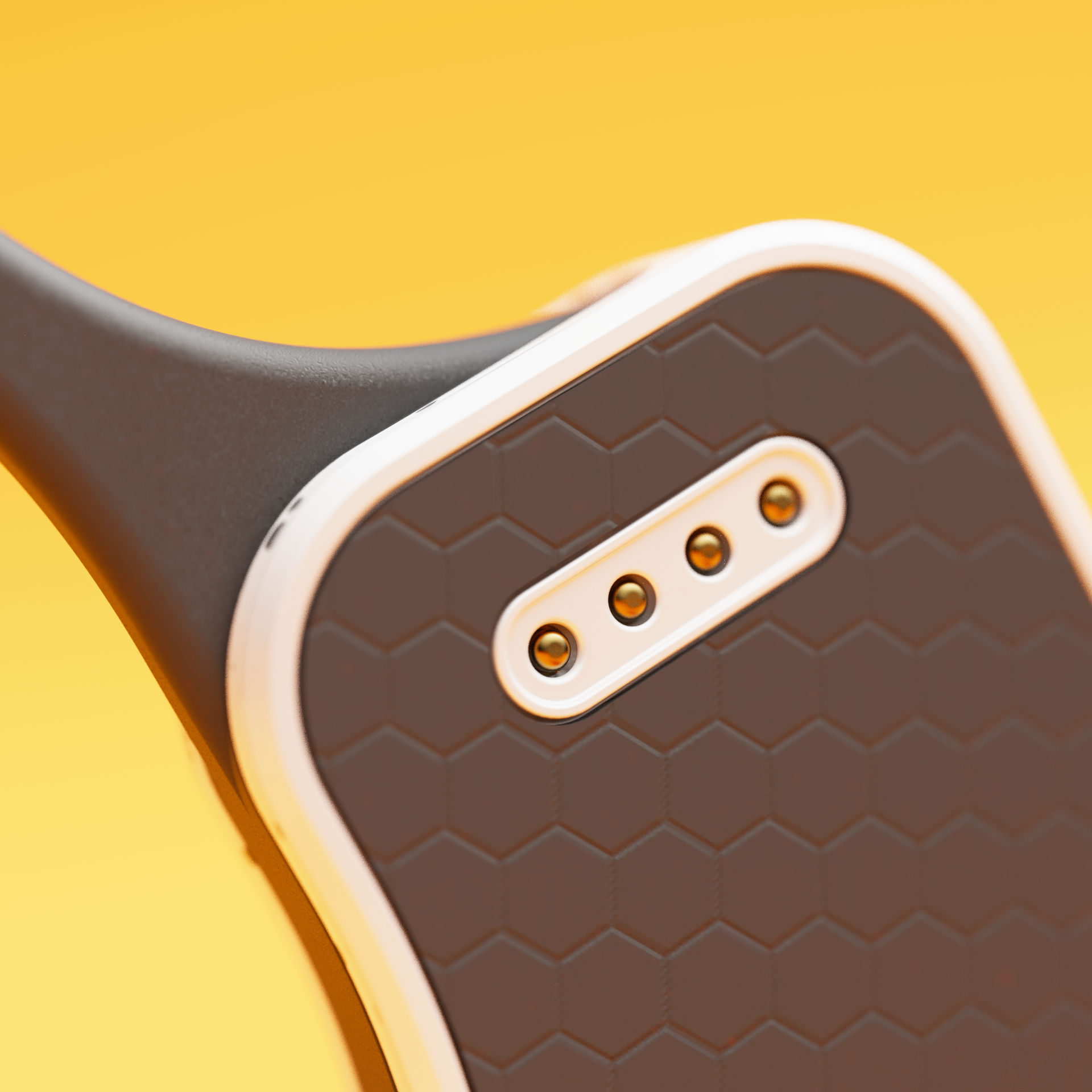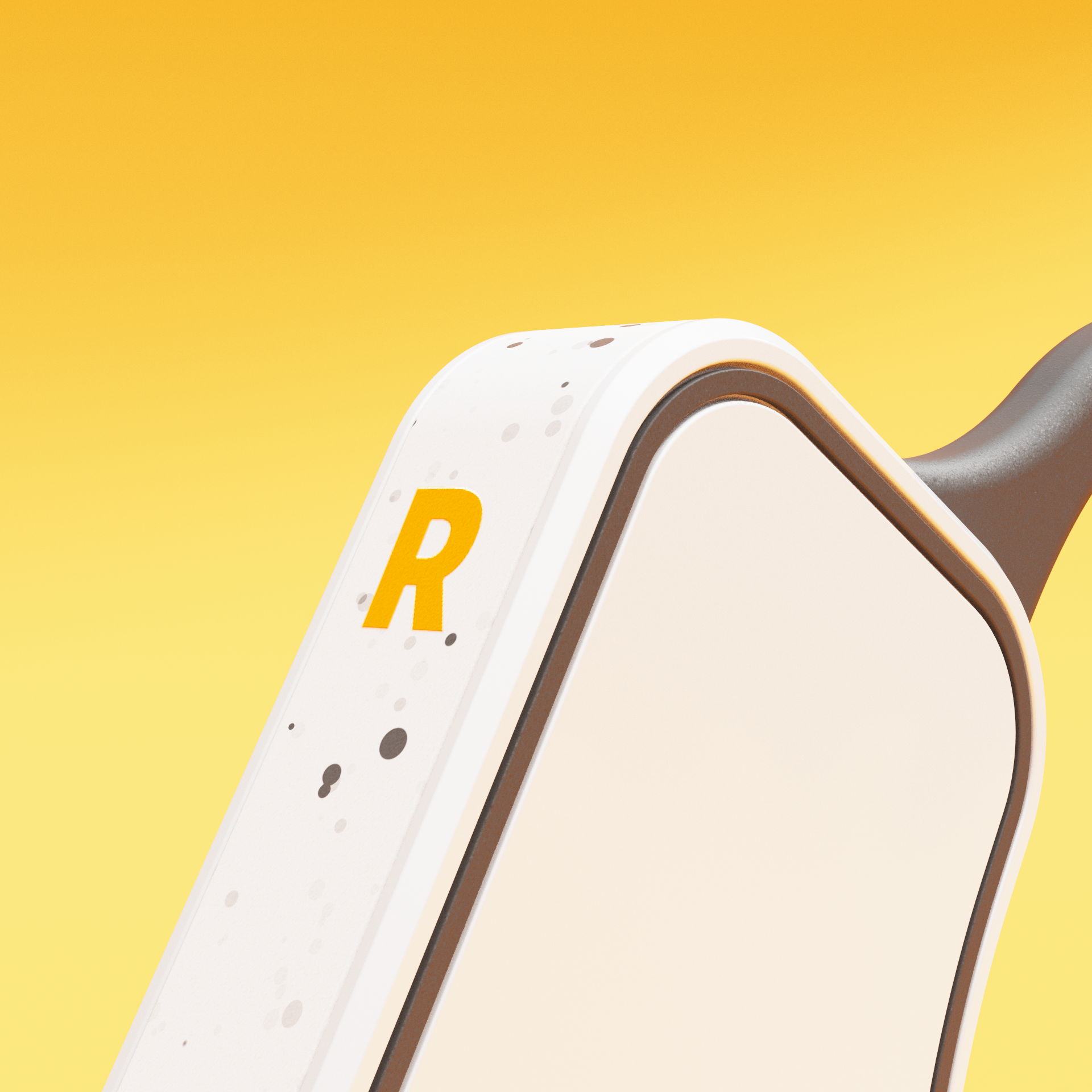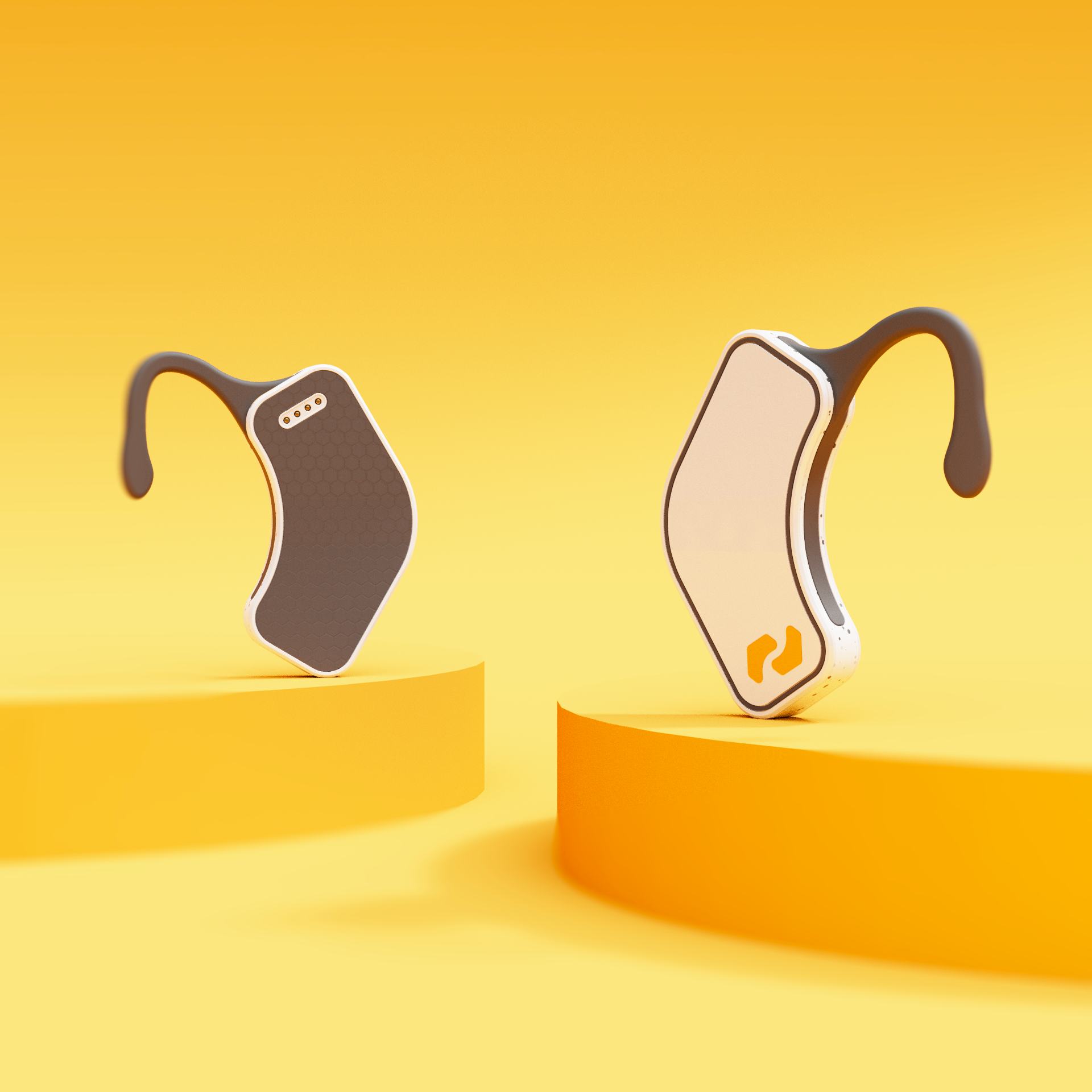The design processed utilised the "Double Diamond" Approach to design. Split into four major sections, including Research, Conceptualisation, Testing and Refinement. Based on a range of resources, from studies based in VR linked motion sickness, to vertigo patients in treatment, pregnancy studies and more - Allevia holds a broad scope of qualitative and quantitative findings and insights.
Conduction of Interviews, Surveys, and speaking with Health Professionals assisted in affirming a strong project foundation. Throughout the conceptualisation phase, multiple concepts were explored and vigorously broken down and analysed by peers and industry professionals. Each round of ideation was informed by findings, insights and research.
The prototyping/testing phase was conducted over the COVID-19 Victorian Lockdown, however produced a 1:1 scale prototype that fit comfortably, and was reflective of true to size tech packaging and use case. Finally, the execution of the project in total exceeded the design brief, producing a project that would later be recognised as an Outstanding Project throughout the cohort.

